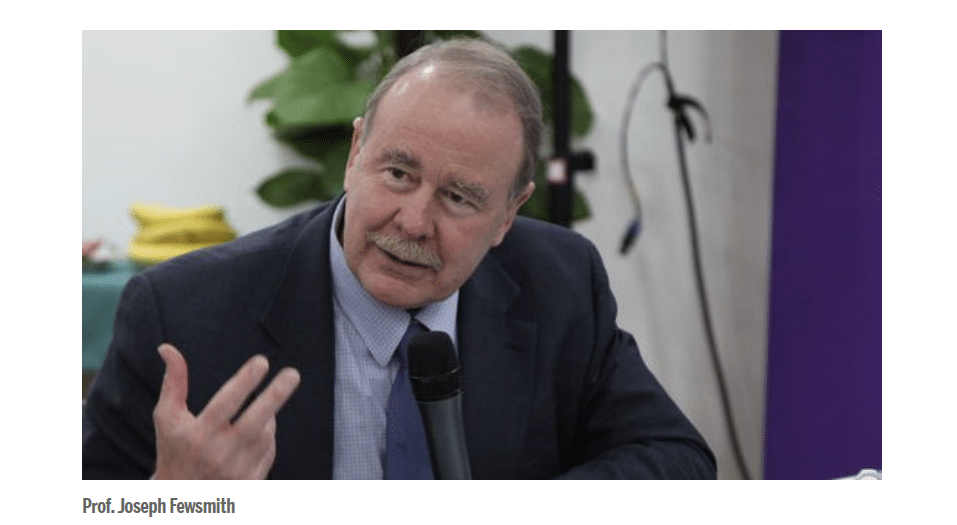Japan’s Prime Minister Takaichi Finally Says Something Close to What Beijing Wants to Hear
RECAP: Institute for Peace and Diplomacy Panel on the Chinese Challenge to the U.S.
On June 24, 2021, the Institute for Peace and Diplomacy (IPD) hosted a panel titled, “U.S. Perspectives on China and the Nature of the Chinese Challenge to U.S. National Interests,” the first panel in a series to discuss the current landscape of the U.S. China relations and identify possible paths to de-escalation. Moderated by Kelley Vlahos, Senior Advisor at the Quincy Institute, this first panel discussed current U.S. perspectives on China and the nature of the Chinese challenge to U.S. national interest amid growing talk of a “new Cold War” and hardening bipartisan consensus around the need to “confront” China. This event featured Doug Bandow, Douglas Macgregor, Lawrence Wilkerson, and Adam K Webb.
First the panelists discussed the nature of the Chinese challenge to the United States. Doug Bandow kicked off the discussion by reviewing the historical importance of China’s rise, highlighting the influence of the century of humiliation and Deng Xiaoping’s reform and opening policy. While China represents a clear economic and influence rival to the United States, there remains a mix of strengths and weaknesses that limit the security threat China poses. As Douglas Macgregor mentions, China’s unique corporatist state model is an attractive alternative for non-Western states, rivaling the United States’ economic leverage particularly in the Asian region. Militarily, the strategic threat posed by China remains defined by the redlines established by the Chinese defensive military placements. Should the United States recognize and respect these redlines posed by China in the South China Sea and on the issue of Taiwan, for example, potential military clash between the U.S. and China remains unlikely.
Lawrence Wilkerson spoke further on the drivers of hawkishness in DC and the roots of the bipartisan rhetoric surrounding US-China relations. Both the United States and China have established hungry industrial military complexes. As wars and threats in the Middle East fade away, policymakers have turned their eyes to the next perceived threat: China. Simultaneously, the advancements and development of a robust People’s Liberation Army in China also generated a military complex that needs to be fed. Wilkerson acknowledged that the urge in the United States is stronger than it is in China.
On ideology, Adam Webb discussed the influence an authoritarian China has on the international community. As China continues to rise and establish itself as an influential country around the world, the ideological nature of China does matter and requires hard critique. U.S. hawkishness against Beijing does, however, hold some misunderstandings. Rhetoric within the United States frames the challenge China poses as a threat to Western dominance rather than strictly ideological. Webb emphasizes the importance of recognizing the reality of shrinking Western power, an issue beyond just competition with China. The long term structural changes on the global stage are impacted by other forces beyond the West and China.
After opening remarks, the panelists spoke on the issue of Taiwan, and the role of the United States in potential conflict with China. The panelists concurred that escalated conflict or war over Taiwan was not in anyone’s interests. While public opinion in Taiwan, particularly in the young generations, increasingly moves away from identifying with China, Beijing’s understanding of the future of Taiwan as part of China remains a hard redline. The panelists all encouraged the United States to conduct peaceful diplomacy which discourages Taiwanese independence and promotes dialogue and negotiation. Webb also emphasized the importance of the Taiwan public opinion in negotiations.
The panel also answered a question on US-China relations in respect to the motivations of China around the world. As China continues to build relationships abroad through the Belt and Road Initiative, the United States should remain strategic and not overly defensive. Both Bandow and Macgregor reflected on the past experiences of the United States and compared China’s current situation with this past. They urge the U.S. to take a step back and see where China’s current course of action leads them. Webb emphasized the need to understand the values that guide economic relations and development and what model does the international community desire.
Finally, the panelists discussed areas for US-China cooperation. The importance of human to human connection between the two countries emerged as a major theme, through educational and student exchanges, connecting young leaders, and other people to people connections. Climate change also presents an urgent opportunity for collaboration.
Click here to watch the full webinar. The next discussion on this series will be advertised on IPD’s social media.








